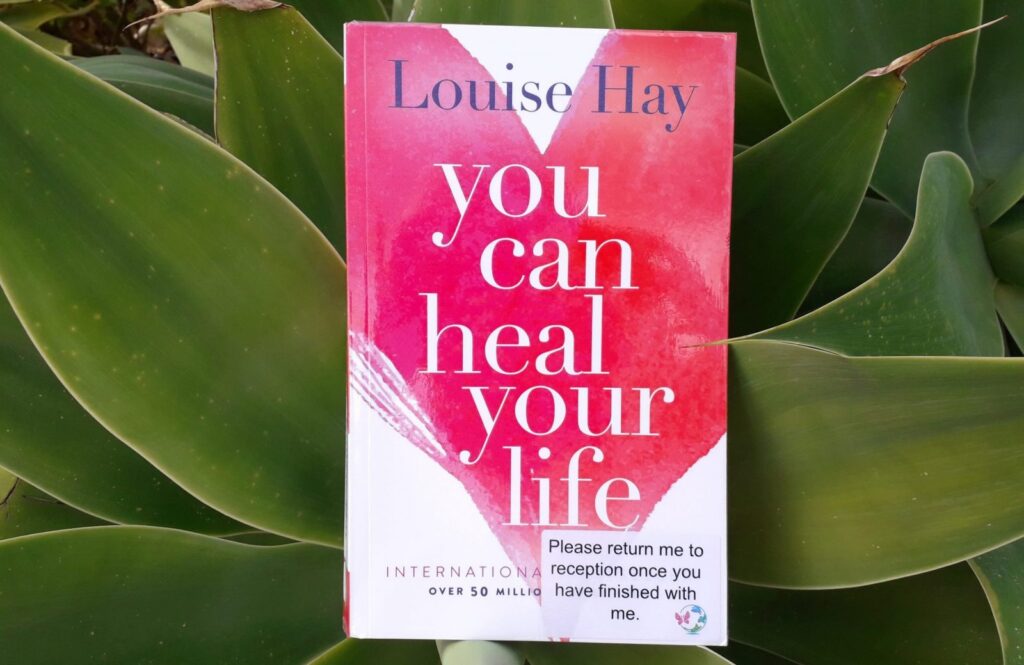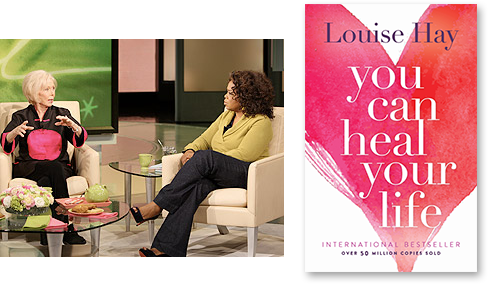There are books that inform, books that entertain, and then there are books that heal. Louise Hay’s You Can Heal Your Life is one of the latter. It’s the kind of book you don’t just read—you absorb it. I picked it up during a time when I felt stuck, both emotionally and physically. And while I’m not one to believe in quick fixes, this book showed me something far more valuable: the profound connection between our mind, body, and emotions.
If you’ve ever felt that nagging voice inside that says you’re not enough, or if you’ve struggled to let go of past hurts, this book might just be the spiritual guide you didn’t know you needed.
What is You Can Heal Your Life All About?
At its heart, this book is about self-love and the idea that our thoughts create our reality. Louise Hay, a renowned motivational author and founder of Hay House, shares her belief that we have the power to heal our lives—both emotionally and physically—by changing the way we think. She writes,
“Every thought we think is creating our future.”
That’s a powerful statement, isn’t it? It’s not just about positive thinking; it’s about taking responsibility for our inner dialogue.
The book touches on topics like forgiveness, affirmations, and the deep connection between our emotional health and physical well-being. But don’t worry—it’s not preachy or overly technical. Hay’s voice is warm, compassionate, and relatable, almost like a wise friend guiding you through the maze of self-doubt and pain.
The Power of Thoughts: A Spiritual Perspective
One of the book’s core ideas is that our thoughts are like seeds. What we plant in the garden of our mind eventually grows into the experiences of our lives. Hay writes,
“If you accept a limiting belief, then it will become a truth for you.”
That hit me hard because, let’s face it, how often do we tell ourselves stories that limit us? Stories like, “I’ll never be successful,” or “I’m not lovable.”
Hay’s approach isn’t about denying difficult emotions or pretending everything is perfect. Instead, she encourages us to gently challenge these thoughts and replace them with affirmations that uplift and empower us. For instance, instead of saying, “I’m stuck,” try saying, “I am willing to release old patterns and embrace change.”
A simple example from my own life: I used to struggle with public speaking. My inner dialogue was a mess—“You’re going to mess up. Everyone will judge you.” But inspired by Hay’s affirmations, I started repeating, “I am confident. My voice matters.” It didn’t work overnight, but slowly, I noticed a shift. That’s the magic of shifting your inner dialogue—it doesn’t just change your thoughts; it changes how you show up in the world.
Healing the Body by Healing the Mind
One of the most fascinating parts of the book is the connection Hay draws between emotional patterns and physical ailments. She believes that unresolved emotions, like anger or resentment, can manifest as physical illnesses. For example, she links chronic back pain to a lack of emotional support or financial insecurity. Whether or not you fully agree with this perspective, it’s an intriguing idea worth exploring.
Hay provides a detailed list of ailments and their possible emotional causes, along with affirmations to address them. For example, for someone dealing with headaches, she suggests the affirmation:
“I love and approve of myself. I see myself and what I do with eyes of love.”
Now, I’m not a doctor, and neither is Hay. But what I found powerful was the reminder to look inward when something feels off in my body. For instance, when I was dealing with constant fatigue, I realized it wasn’t just about overworking—it was about feeling unworthy of rest. That insight alone brought a sense of relief and gave me the courage to set boundaries.
The Practice of Forgiveness
Forgiveness is another cornerstone of Hay’s teachings. She emphasizes that holding on to resentment doesn’t harm the other person—it harms us. One of her most memorable lines is,
“Forgiveness is for yourself because it frees you. It lets you out of that prison you put yourself in.”
I remember reading this and immediately thinking of a friendship that ended badly years ago. I had been carrying that grudge like a badge of honor, thinking it protected me. But all it really did was weigh me down. Inspired by the book, I sat down, wrote a letter to that friend (one I never sent), and poured out everything I had been holding on to. By the end, I didn’t feel anger anymore—I felt light.
Forgiveness isn’t easy, and Hay doesn’t pretend it is. But she shows that it’s necessary for healing, not for the other person’s sake, but for our own.
Real-Life Relatability
What sets You Can Heal Your Life apart is how personal and relatable it feels. Hay shares her own story of overcoming an abusive childhood, failed relationships, and even cancer. Her vulnerability makes the book more than just a guide—it’s a testament to resilience and the human spirit’s ability to heal.
One part that stood out to me was when she talked about mirror work—standing in front of a mirror and saying affirmations like, “I love you. You are enough.” I’ll be honest, the first time I tried this, I felt ridiculous. But the more I did it, the more I realized how hard it was to meet my own gaze without judgment. It’s a small, simple practice, but it’s incredibly powerful.
What I Took Away from You Can Heal Your Life

Reading You Can Heal Your Life was like peeling back layers of my own resistance to self-love. It’s not a book that tells you what to do—it invites you to explore your own thoughts, beliefs, and patterns with compassion and curiosity.
A few key takeaways for me were:
- The Importance of Self-Talk: The way we speak to ourselves matters more than we realize. Hay’s affirmations are like a roadmap to kinder, more empowering inner dialogue.
- The Link Between Emotions and Health: While not everything is in our control, paying attention to how our emotions might be affecting our body is a valuable practice.
- The Power of Forgiveness: Letting go of resentment is a gift we give ourselves.
- Self-Love is a Practice: It’s not a one-time thing. It’s something we choose every day, even when it feels hard.
Final Thoughts
You Can Heal Your Life isn’t just a book—it’s an invitation to reconnect with yourself. It’s about realizing that healing doesn’t come from fixing everything around us but from nurturing the relationship we have with ourselves. It’s spiritual in the sense that it reminds us of our inherent worth and the power we hold to shape our lives.
If you’re someone who’s feeling stuck, weighed down by self-doubt, or simply curious about the mind-body connection, I can’t recommend this book enough. It’s not about quick fixes or magical solutions—it’s about planting seeds of change and patiently tending to them.
As Louise Hay beautifully puts it,
“You’ve been criticizing yourself for years, and it hasn’t worked. Try approving of yourself and see what happens.”
That, to me, is the essence of the book—and maybe the essence of healing itself.

